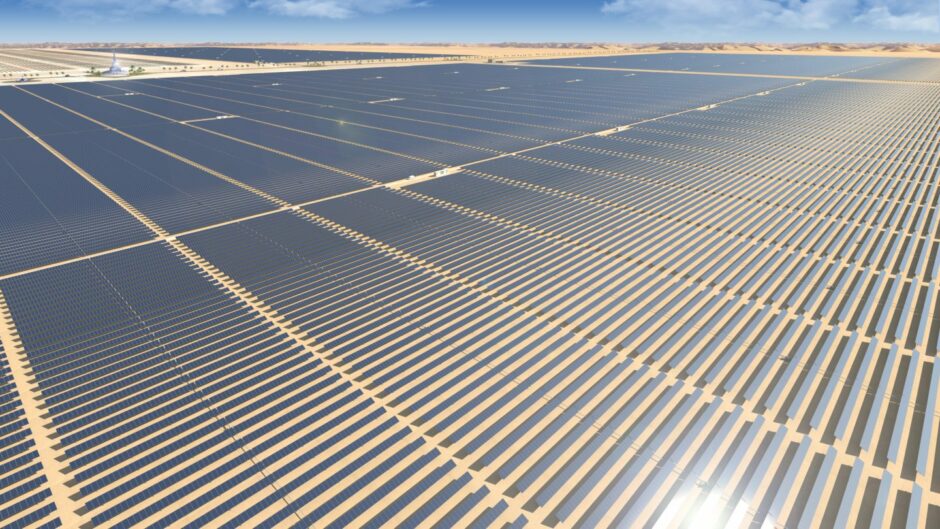
Masdar has struck an agreement to work on e-methane with Inpex, during a high-level Japanese visit to the Middle East.
The two companies will carry out a feasibility study on the entire value chain, they said. This involves producing hydrogen, sourcing CO2 and then production and transportation of the synthetic gas. The study will consider production in Abu Dhabi and exports of e-methane to Japan.
Japanese Prime Minister Fumio Kishida witnessed the signing of the deal, at the Japan-UAE Business Forum in Abu Dhabi. Sheikh Hamed bin Zayed Al Nahyan, member of Abu Dhabi Executive Council and the managing director of Abu Dhabi Investment Authority, also witnessed the signing.
Masdar CEO Mohamed Jameel Al Ramahi said the agreement “opens an exciting new chapter for Masdar as we explore how to unlock the full potential of green hydrogen to produce fuel for homes and businesses”.
Al Ramahi said the company would aim to build “strong alliances” with Japanese partners ahead of COP28, due in Dubai in November.
Inpex president and CEO Takayuki Ueda said the joint initiative was “fully aligned with our decarbonisation efforts as well as our long-term commitment to Abu Dhabi, which is one of our core business areas.
“We hope to leverage this opportunity to provide added value for our stakeholders in Japan and the UAE, while helping realize a net-zero society by 2050.”
Energy ties
Japan and the UAE announced a strategic partnership in September 2022, with a high-level visit to Tokyo. The two states signed an agreement this week launching the Japan-UAE Business Council.
The state visit saw a number of agreements signed, including one between the UAE Ministry of Industry and Advanced Technology and Japan’s Ministry of Economy, Trade and Industry (METI) on establishing an Energy Security and Industry Accelerator (ESIA).
The UAE is Japan’s second largest source of oil.
Before coming to the UAE, the Japanese premier was in Saudi Arabia, where the two countries agreed to create the Lighthouse Initiative. This aims to develop energy transition technologies, including hydrogen, ammonia, e-fuel, carbon capture and critical minerals.
Kishida left Abu Dhabi this morning for Qatar. The prime minister intends to talk about LNG and stabilising the global market, he has said.

